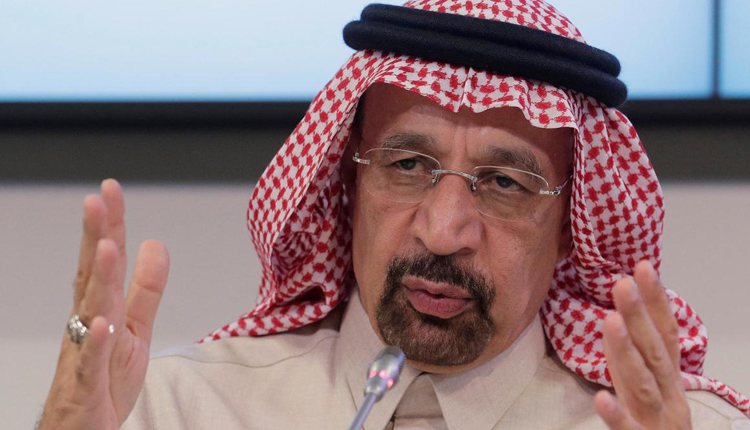OPEC kingpin Saudi Arabia does not wish to impose a 1973-style oil embargo on Western consumers, its energy minister reportedly said on Monday, amid a deepening crisis over the murder of journalist Jamal Khashoggi.
It comes as the world’s top oil exporter faces intensifying international pressure to explain exactly what happened to Khashoggi at a Turkish consulate earlier this month.
On Friday, the kingdom admitted for the first time that Khashoggi — a prominent critic of Saudi leaders and former Washington Post journalist — had been killed. The statement comes after Riyadh initially said he had left the building unharmed on October 2.
Turkish authorities claim Khashoggi was murdered by a team of Saudi agents inside the consulate and say they have evidence to prove it.
Saudi Crown Prince Mohammed bin Salman has denied any involvement.
“There is no intention,” Khalid al-Falih told Russia’s TASS news agency when asked whether there could be a replay of the 1973-style oil embargo.
The 1973 oil embargo refers to an extraordinary move by Arab OPEC members to stranglehold oil markets. It was imposed on countries supporting Israel during that year’s October War between Israel, Egypt, and several Arab states. As a result, the U.S was left with a crude shortage and oil prices quadrupled.
‘This incident will pass’
Top U.S. lawmakers ramped up the pressure on Saudi Arabia over the weekend, accusing the crown prince of orchestrating the killing of Khashoggi. However, U.S. President Donald Trump’s administration has adopted a more cautious stance.
Some U.S. lawmakers have even suggested punishing Saudi Arabia with economic sanctions, while Riyadh has promised to retaliate to any sanctions with “bigger measures.”
“This incident will pass. But Saudi Arabia is a very responsible country, for decades we used our oil policy as (a) responsible economic tool and isolated it from politics,” al-Falih said.
“My role as the energy minister is to implement my government’s constructive and responsible role and stabilising the world’s energy markets accordingly, contributing to global economic development.”
Saudi Arabia’s energy minister also warned that if oil prices went up, it would most likely trigger a global recession. But added with the prospect of U.S. sanctions against Iran coming into effect early next month, there could be no guarantee of oil prices staying below triple digits.
“I cannot give you a guarantee, because I cannot predict what will happen to other suppliers,” al-Falih said, when asked if the world could avoid crude futures jumping above $100 a barrel again.
Source: CNBC
